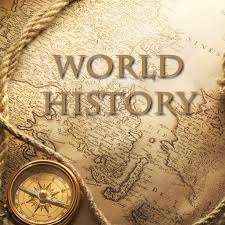The UPSC has only briefly addressed
the world history syllabus. As a result, the majority of the questions in the
mains examination appear to be from outside the syllabus. As a result, we must
focus on the syllabus with great care. We can get direct help for this from the
world history syllabus of the history optional. There is no need to go into
detail about these topics here; simply understanding them will help you answer
the GS world history section.
If we look at past years' UPSC mains
Paper 1 question papers, we can notice very few questions from world
history were asked in the last couple of years, and only one question was
asked in 2021 (severe challenge to the Democratic State System). 1 question in
2019 (the modern world's foundation). In 2017, one issue (decolonization in the
Malay Peninsula) and one question (anti-colonial fight by elite Western-educated individuals in West Africa) were asked. Given this pattern, it would
be prudent not to devote too much time and attention to an in-depth study of World
History.
Given the time an aspirant devotes to
preparation, there are two options. First, if an aspirant begins his or her
preparation a year before the Prelims, he or she might consult the Old NCERT book. However, it should be noted that any book that the aspirant is
reading should be given enough time to be revised at least three times.
Overall, an aspirant should not devote too
much time to the world history section of the GS mains paper -1 because the
syllabus of the GS mains paper -1 is vast in comparison to the number of
questions asked in the Mains Exam. Instead, that time can be spent on other
aspects of history.
UPSC Syllabus for World History
The Civil Service
Exam Mains syllabus now includes a part on World History. This section focuses
on events from the year 1700 or the 18th century. The UPSC has only discussed
the World History syllabus briefly, which is why questions from this part
appear to be unrelated to the syllabus. The UPSC World History Syllabus contains the following topics:
Industrial Revolution
World War 1, World
War 2
Decolonization
Unification of Italy
Unification of Germany
Colonization
Nazism and Fascism
Communism, Capitalism, and Socialism
Redraw of national boundaries
World History UPSC Books
Books are essential in preparing for the UPSC CSE. Candidates must
collect all of the necessary books to prepare for UPSC World History. With so
many options available, candidates may feel overwhelmed when making their
choice. To make things easier, we've included the best World History Books for
UPSC below.
World History NCERT for UPSC
History of Modern World – Jain and Mathur
Mastering Modern World History – Norman Lowe
History of Modern World – BV Rao
Bottomline
In conclusion, even though the UPSC CSE exam's world history part is
crucial, candidates should be aware that only a small number of questions from
this area are asked in the Main Exam. It is therefore advised to limit the
amount of time spent studying world history in-depth. Other historical topics
should be given priority, and appropriate time should be allowed for review. A
well-thought-out and balanced strategy would help candidates succeed in the
UPSC CSE exam's world history subject.

